|
By Tonte Spiff Willie O’Ree is one of the most important individuals in the history of not only sport, but also culture, as he was the first Black player to participate in an NHL game. O’Ree was born on October 15th, 1935 in Fredericton, New Brunswick, to parents Rosebud and Harry. He is the youngest of 13 children. O’Ree’s grandparents were only two of approximately 30,000 Black people who came to Canada from the United States, via the Underground Railroad to escape extreme prejudice and slavery. Although, O’Ree was a minority growing up in Fredericton, as there were only two other Black families in the city at the time. O’Ree began playing hockey at age three, and was immediately attracted to the sport as he played regularly on his family’s backyard rink constructed by his father, and skated to school whenever the weather would permit. The gamble taken by O’Ree’s grandparents by traveling to Canada via the Underground Railroad would pay off, as his memories of growing up as a minority in Fredericton were positive. In his autobiography, The Willie O’Ree Story: Hockey’s Black Pioneer, O’Ree wrote that the colour of his skin was never an issue at the rink as a child. O’Ree eventually grew accustomed to racism during his professional career in the minor leagues, and even the NHL, as opposing players and fans would shower him with racist insults before, during, and after games. O’Ree was far too determined to succeed to allow the foul behaviour of others to negatively affect him. In the 1955-56 season while he was playing for the Kitchener Canucks of the Ontario Hockey Association, O’Ree was hit in his right eye with the puck. The shot not only broke his nose and cheekbone, but also caused him to lose 95% of the vision in his right eye, which led to the doctor advising him to stop playing hockey. Unbelievably, he was back on the ice within two months of the injury taking place. O’Ree was forced to stay silent about his loss of vision due to an NHL bylaw that would deem him ineligible to play, as the league still adopts a rule to this day that forbids all players who are blind in one eye from competing. As a result, in order for O’Ree to continue moving up the ranks in the hockey world, he had to not only overcome a colour barrier, but also a physical disability. After his stint with the Kitchener Canucks, O’Ree decided to join the Quebec Aces in the 1956-57 season. The Aces were an organization with a history of integration as Herb Carnegie, a Black hockey player from Toronto, starred for them from 1949 to 1953. During O’Ree’s time with the team, he played on a line with Stan Maxwell, another Black Canadian. For the 1957-58 season, the Aces formed a working relationship with Boston Bruins of the NHL, which meant that Ace players could be called up to play for the Bruins at any point. The relationship led to O’Ree making history on January 18th, 1958 at the Montreal Forum by becoming the first Black player to participate in an NHL game. The fact that O’Ree was the first Black player to participate in an NHL game received minimal interest at the time, as his debut wasn’t mentioned in either The Boston Globe or The New York Times. It was reported by a Canadian sportswriter at the time that O’Ree “was greeted with no emotion, no applause and, above all, no animosity.” Although, this may have been due in part to the fact that Montréal sports fans were already familiar with O’Ree, having played occasionally in the city as a member of the Aces. Racism, which is unfortunately still an issue in the NHL as current players including Wayne Simmonds and Devante Smith-Pelly have been outspoken about, is something O’Ree handled with grace. One night in Virginia, in the 1972-73 American Hockey League season, fans tossed cottons balls and even a black cat onto the ice. Although, there were instances where O’Ree, rightfully, felt the need to retaliate when opposing players would intentionally try to injure him. O’Ree described the racist treatment throughout his time playing hockey, to be much worse in the United States than Canada. O’Ree has been extremely active in the hockey community, even beyond his playing days, as he currently acts as the NHL’s Diversity Ambassador for the Hockey is for Everyone initiative, a position he has held since January of 1998. The importance of his role as the Diversity Ambassador cannot be overstated, as the Hockey is for Everyone initiative has introduced unique hockey experiences to more than 120,000 boys and girls of diverse ethnicities and cultural backgrounds. In addition, O’Ree has traveled across Canada and the United States to help establish 36 local grassroots hockey programs, all of which are geared towards serving economically disadvantaged youth. Not only did O’Ree strongly advocate the notion that “Hockey is for everyone”, but also stressed the importance of essential life skills, education, and the core values of hockey, which are: commitment, perseverance, and teamwork. Over the years, since his hockey career came to an end, O’Ree has been the recipient of numerous awards, accolades and honours. These include his induction into the New Brunswick Sports Hall of Fame in 1984, receiving the Lester Patrick Award for his outstanding service to hockey in the United States in 2003, and becoming the inaugural recipient of the Bill Walsh Champion of Change Award, which recognizes an individual or organization whose tenacity of purpose helps pave paths for others. In addition to these awards and accolades, Fredericton City Council named a new hockey arena after O’Ree, in honour of his achievements in January 2008. One of O’Ree’s most recent accolades was his induction to the Hockey Hall of Fame as a Builder in November 2018. Even though O’Ree’s NHL career consisted of just 45 games over the span of two seasons, the Hockey Hall of Fame states: “It is the historical impact of his NHL career that has led him to Honoured Member status.” The reach of O’Ree’s impact stretches far beyond hockey, which is why the NHL introduced the Willie O’Ree Community Hero Award. This award is presented to the person who best utilizes hockey as a platform for participants to build character, and develop important life skills for a more positive family experience.
This Black History Month we continue to recognize and celebrate the positive impact of contributions made by individuals such as Willie O’Ree. |
Recent Posts
Categories
All
Archives
February 2022
|
|
GET THE APP!
Listen to VIBE 105 anywhere you go!
|
OUR STATION
|
TUNE IN RADIO
|
STAY CONNECTED
|
Copyright © 2021 Canadian Centre for Civic Media and Arts Development Inc. Except where otherwise noted, presentation of content on this site is protected by copyright law and redistribution without consent or written permission of the sponsor is strictly prohibited.


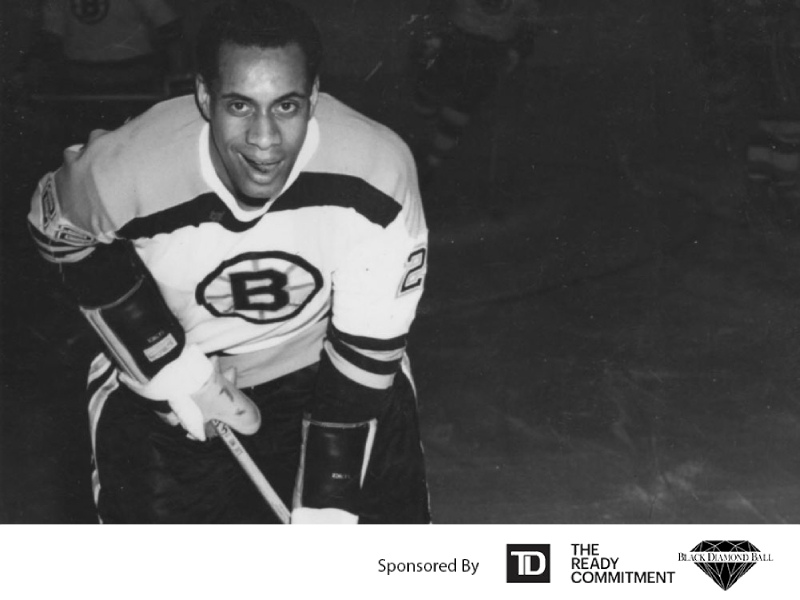
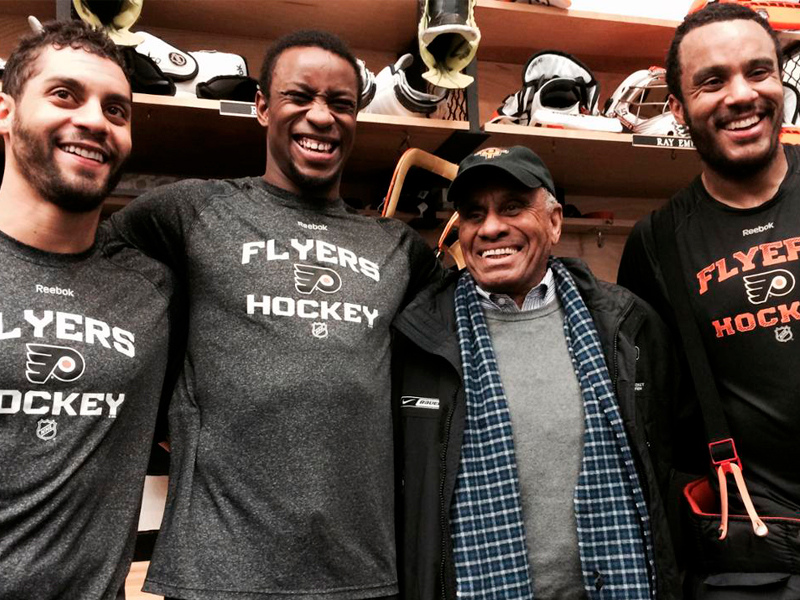
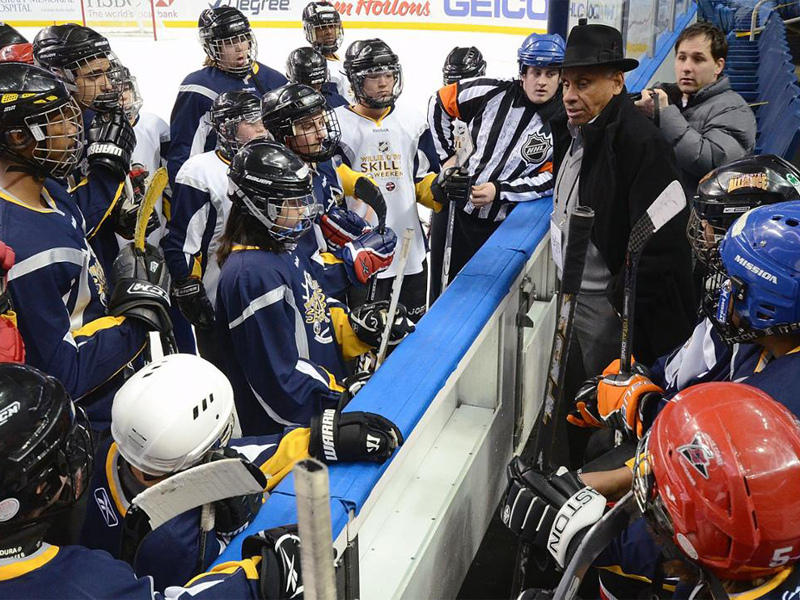
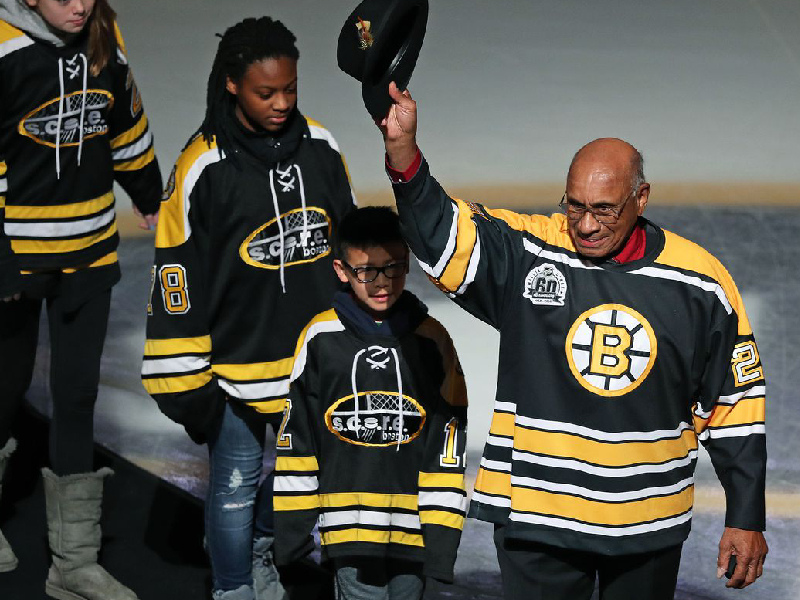
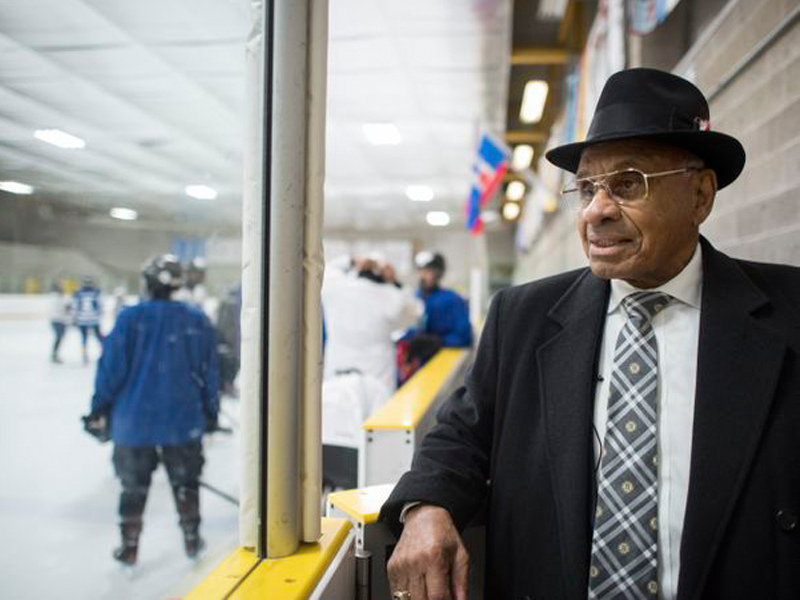
 RSS Feed
RSS Feed


